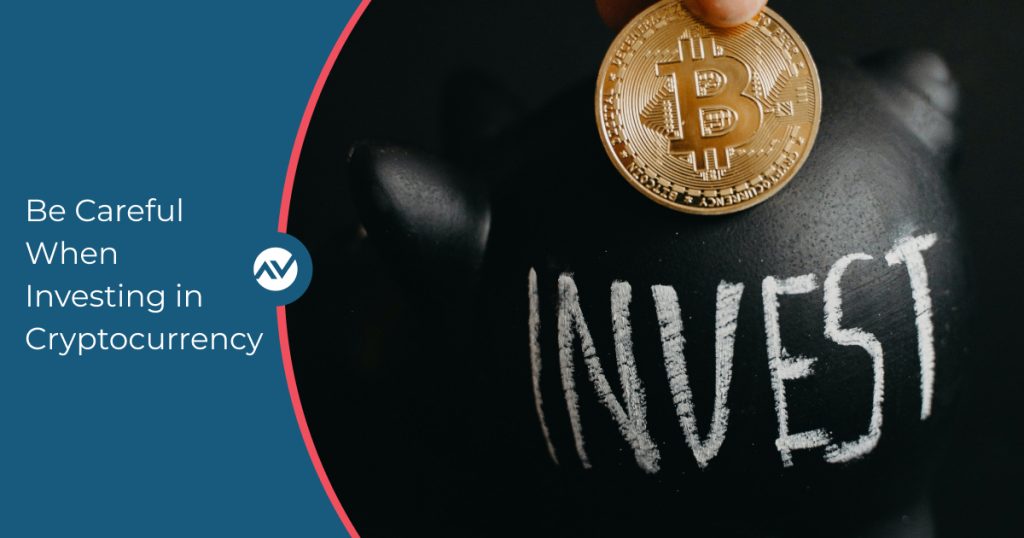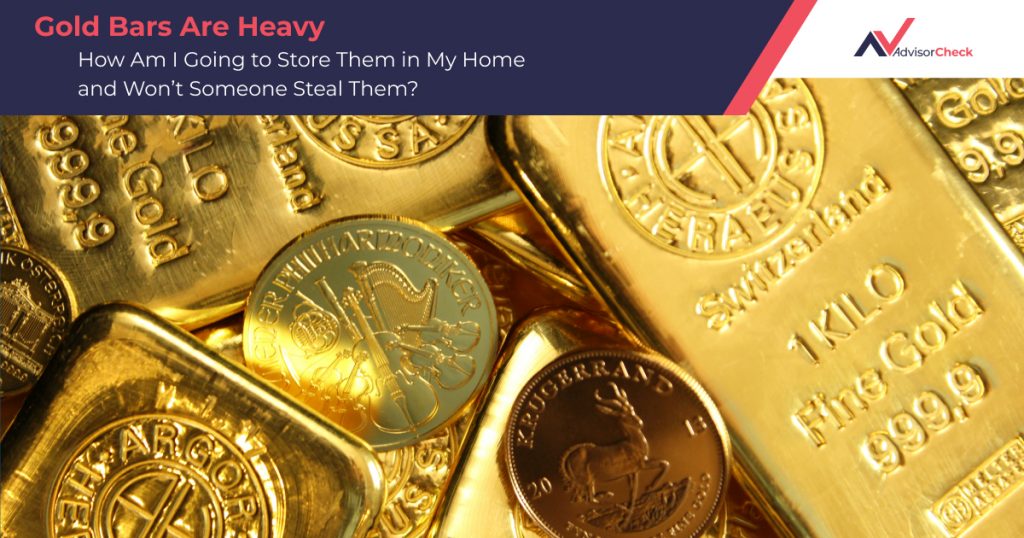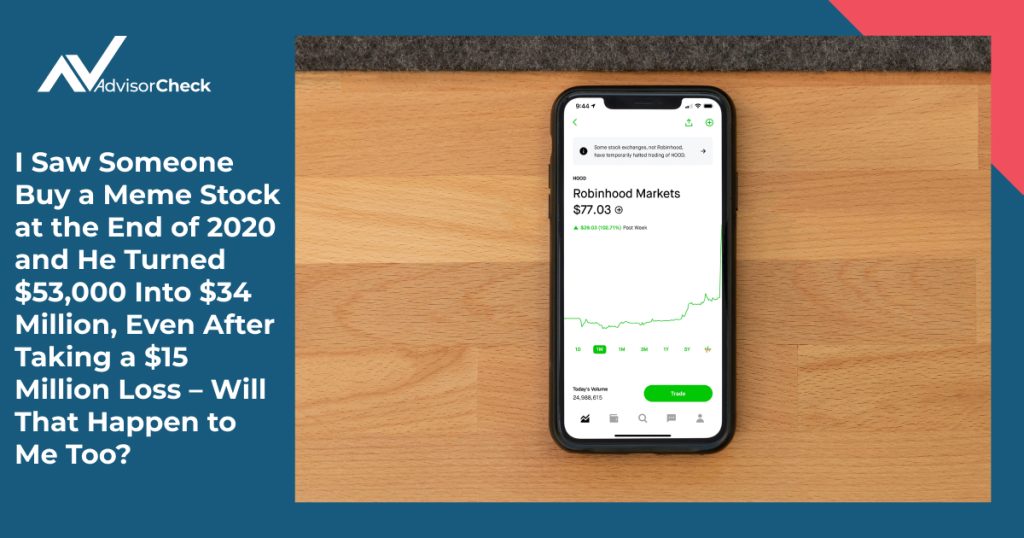
The Market
Crypto, Art, Gold, Frozen Orange Juice Concentrate and Other Things That I Will Be Buying in 2023
We are in the spotlight












When you look at the world of finance, it’s easy to get confused by what’s out there. There are so many instruments that you could take advantage of when it comes to investing in your future. Most people know about stocks, bonds, and mutual funds, and some even know about treasury notes. But there are numerous other types of vehicles to utilize in the world of investing. It’s easy to get caught up in the mix. You might see someone make a big trade where they earned a large sum of money at once in an extremely short period of time and think that could work for you, too. It can lead you down the rabbit hole – in many cases, the uneducated investor ends up losing a lot of their savings, sometimes even everything they have set aside for retirement. Investing is risky, especially for people who are new to the markets and are unsure of how they operate. Some people might not even know that you can invest in simple everyday household groceries, like orange juice concentrate, or that there is a way to get involved with the S&P 500 without spending around $4,000 for one share, through exchange-traded funds (ETFs) that cost a tenth of the index per share. Two of the most popular investments that people have been talking about lately are cryptocurrency and art. But what about frozen orange juice concentrate? Keep reading and we’ll explain what we mean by that.
Finance behemoths like Bloomberg and the Wall Street Journal make you pay to learn about finance. We share our insights to expand your financial literacy for free.
Whether you’re new to investing or you’re a seasoned investor, keep reading for our walkthrough of popular alternatives to the stock market that you may not have heard of. Many investors have their eyes trained on cryptocurrency, as it’s one of the most volatile investments you can make – the price of crypto tends to shoot up precipitously and then fall just as abruptly. For instance, let’s examine Bitcoin, the most well-known form of cryptocurrency. If we look at a snapshot of Bitcoin’s trajectory over the last year or so, it hasn’t looked good: the price of Bitcoin has been in a continual freefall, from $50,000 to less than $20,000. (Meanwhile, the second most popular cryptocurrency, Ethereum, has followed a similar path – it’s dropped from around $4,200 to $1,200 in the same period.) Some investors might see this as a potential buying opportunity, particularly those with a bullish perspective on Bitcoin’s future (i.e. those who expect Bitcoin’s value to climb higher again). Hoping to take advantage of the fact that Bitcoin is at about a 52-week low, they might invest in it now, with the expectation that they’ll make a profit when its value increases. Others might say that the bottom has not yet fallen out of the world of crypto, and might argue that Bitcoin still has quite a ways to go on its way down. There are reasons to believe Bitcoin could go up, and reasons to believe it might continue to decrease in value – it’s impossible to predict entirely. Either way, if you take in all the available information and decide that you’d like to add crypto to your portfolio, we have some words of warning: You should not invest in anything that cannot be traded on a regular exchange. Examples include:Cryptocurrency Dominated Headlines As Bitcoin Rose As High as $64,000 at Its Peak, but Is It a Good Investment?

Be Careful When Investing in Cryptocurrency

The mismanagement of personal finances cost Americans a total of more than $352 billion in 2021.
Read the white paper to see how much your household may have been impacted.
It may be tempting to be a part of an initial coin offering, or even to take advantage of an altcoin. These do draw a lot of people who are not experts at investing, let alone coin trading, because of the amount of people who post significant gains through trades that look like they’re earning 10 times their initial investment. However, what you aren’t seeing is how many people lose their life savings through trades like these. These kinds of investments have a much lower market cap and volume than what you’ll find in a more legitimate cryptocurrency like Bitcoin, which means that investing in them could easily wipe out your savings. Purchasing art used to be simple. You could walk into an art gallery, look around at the artists whose work was being showcased for a specific event, then go and purchase it. You could get a skateboard or a canvas of Takashi Murakami’s colorful flowers with radiant smiles in physical form and place it in your home to be enjoyed by your family and friends, hoping that one day it would appreciate in value. Nowadays, art goes well beyond the physical artwork that you can find in a museum or an art gallery. Art now extends from the physical art created by painters and sculptors to the much newer world of NFTs. In the traditional world of art, you could still go to an art gallery to pick up a masterpiece, but you can also utilize platforms such as Masterworks, which allows you to purchase fractional shares of art so you do not have to invest into a costly piece of art in one fell swoop. This makes it easier to afford Basquiats, Degas and the likes, as many people who do appreciate art either do not want to put all their investment capital into one entire piece of art, or would much rather diversify their assets further. Investors who have waited for the sale of a piece of work have experienced gains on some popular traditional works of art. In the world of NFTs, you will find some traditional artists who have moved their way into the digital world as an extension to the art that they already create, but you will also find many new groups who operate as companies and hire artists to create their work for them behind a brand. And more often than not, that brand behind the NFT is a marketing arm meant to push out as many digital assets as possible, as opposed to bringing value and appreciation to its art counterparts in the physical world. While art in the physical world tends to have a following and auction houses keep immaculate records of how well creative works by certain artists appreciate over time (think Rembrandt or Van Gogh), we’re considering NFTs in this article. The question is whether the NFT industry is likely to drop to the floor and get wiped out, or whether it could potentially recover. There are lots of reasons to be careful when considering investing in NFTs, as most have dropped significantly in price. Consider this example: in January 2022, Justin Bieber purchased a Bored Ape Yacht Club NFT (the hottest brand of NFT at the time) for the equivalent of $1.3 million in Ethereum. By November 2022, its value had plunged to about $70,000, which is a staggering decrease of 95 percent. Meanwhile, the monthly trading volume of OpenSea (which Forbes calls “the Amazon.com of [NFTs]”) has seen a significant decline from its peak of $4.9 billion in January 2022, to a December 2022 low of about $124 million. That’s a decrease of more than 97 percent. Art Basel Brings Top Artists Together in Miami While Other Artists Are Moving to Digital Assets – Does This Mean Art Is a Ripe Investment?

It is estimated that about 65% of Americans are financially unhealthy and unable to manage their finances.
Read the full white paper to see how much money Americans are losing each year.
And Bloomberg estimates that NFT trading volumes as a whole collapsed from $17 billion in January 2022 to $466 million in September 2022, a 97 percent decrease that indicates demand for NFTs has significantly declined. Needless to say, although we can’t tell you for sure what to expect from the NFT market, the trends we’ve described indicate that NFTs are quite a high-risk investment. That’s why we’d advise those who are interested in further exploring the NFT market to do their due diligence and thoroughly research the industry. Be cautious before making any buying or selling decisions, as the market for NFTs doesn’t have anywhere near the same history of the traditional art market, let alone that of the stock market. The lack of data over an extended period of time prevents investors from realistically assessing whether or not NFTs will be a good long-term investment. As a rule, the value of gold is usually negatively correlated with the value of currency, meaning that gold goes in the opposite direction of currency. This means that when the dollar gets weaker, gold increases in value; when the dollar is stronger, gold decreases in value. Here’s the current situation with gold: for most of 2022, its value has decreased due to the inflation of the dollar during that period. But recently, shifts in the market have caused the value of gold to increase again, possibly due to declining trust in the currency as interest rates have risen persistently. If you’re interested in investing in gold, it doesn’t mean you’ll have to store physical bars of gold in your home – the financial markets have created a convenient workaround for this. Among the largest gold exchange-traded funds (ETFs) is the SPDR Gold Shares ETF, for which real gold bars are held in a trust. Each share of the ETF (denoted by “GLD”) is equivalent to owning a certain number of those physical bars. The price of your GLD shares follows the price of actual gold, but you don’t have to keep the gold on your property; investing in GLD is easy and convenient, with no pesky gold storage costs to worry about. If you haven’t traded an ETF before, you may want to ask for assistance from your financial advisor prior to making any trades in the market. You may find it hard to believe, but there are many everyday commodities you can invest in, such as oats, cattle, oil and cotton. You can even invest in frozen orange juice concentrate. Frozen orange juice concentrate is a future, which is “a derivative contract to buy or sell an asset at a future date at an agreed-upon price,” writes NerdWallet. Futures are most often commodities, and are traded within a set period of time before a contract is set to expire (also known as the last trading day). In most cases, this day is the third Friday of the month, and this is also true for frozen orange juice concentrate, according to the Intercontinental Exchange. Once a future contract expires, it often needs to be renewed for the next future in order to stay liquid in the market. Otherwise, the carrier of the contract would need (at least in theory) to purchase the frozen orange juice concentrate, or else watch their contract evaporate. Some of the most significant, high-volume examples of agricultural futures include soy, corn and wheat – in essence, any farmed goods that have a value associated with them. Agricultural futures are sold off as contracts before the physical agricultural products themselves are sold to distributors and manufacturers. According to MarketWatch, frozen orange juice concentrate futures have been trending upward, from $97.10 at the beginning of January 2020 to $209.10 in December 2022. This could indicate that more people want orange juice nowadays and demand for it is higher overall – we might attribute this to more people working from home and having breakfast with their families since the start of the pandemic. Gold Bars Are Heavy – How Am I Going to Store Them in My Home and Won’t Someone Steal Them?

You Can Really Invest In Frozen Orange Juice Concentrate? How? I Thought It Was Meant To Be Consumed by My Kids!

We empower new and seasoned investors to take charge of their finances.
Get the most reliable financial resources delivered straight to your inbox.
This explanation is backed up by research data, which found that “55% of U.S. shoppers are eating at home more often since the pandemic began, with 44% of them eating breakfast at home every day, versus 33% before the pandemic.” If you have experience with futures already, this could be a solid pick. If you aren’t familiar with futures yet, take the time to read through multiple sources to get a better understanding of how these financial instruments work, as trying to keep a future contract past its expiration date could affect your investment goals in unwanted ways. Like GLD, TLT is another exchange traded fund (ETF), specifically for the iShares 20+ Year Treasury Bond. TLT holds U.S. Treasury bonds that typically “perform inversely to interest rates,” writes Investor’s Business Daily. This means that if interest rate expectations increase, the price of TLT stock decreases; if interest rate expectations decrease, the price of TLT stock increases. In light of these trends, here’s a general rule when it comes to deciding whether to invest in long-term bonds like TLT, courtesy of Investopedia: “If you predict interest rates to rise in the future, it is best to avoid long-term bonds [like TLT] that could lock in a lower interest rate. However, if you believe interest rates will fall, then it makes sense to invest in an ETF like the TLT.” In October 2022, TLT stock hit a five-year low, but it has since shown a steady upward trajectory. Meanwhile, as of December 2022, inflation continues to exceed the predictions of both experts and the Federal Reserve, so interest rates are also expected to continue increasing in 2023. TLT’s positive attributes (its liquidity and low expense ratio) make it a first-rate ETF and, at the right time, a worthwhile investment. However, since Federal Reserve Chair Jay Powell announced that “more hikes are on the way in 2023,” now may not be the time to invest in a long-term bond like TLT. Once again, if you haven’t traded an ETF before, make sure to check in with a financial advisor to get their recommendations on how much of your investment portfolio you should allocate to said ETF. A former employee at MassMutual who posted his analyses and projections regarding GameStop stock on the subreddit r/WallStreetBets ended up making $15 million trading options for the meme stock. These posts contributed to the January 2021 GameStop short squeeze and to a larger trading frenzy focused on retail stocks. Although he made millions of dollars, what about all the people who make similar gambles and lose? While this employee made a lot of money for himself, he is also still under investigation by The Massachusetts Securities Division of the Office of the Secretary of the Commonwealth of Massachusetts for allegedly not reporting outside activity conducted while being employed at the registrar of his previously held IAR and RR licenses. We would recommend avoiding so-called “meme stocks,” which are company shares that have effectively gone viral due to their popularity on social media platforms (especially Twitter, Reddit and Facebook). In 2022, Marketwatch named AMC, GameStop and Bed Bath & Beyond as some of the year’s most notable and coveted meme stocks. Notable doesn’t always mean that they are good investments, however. These and other stocks are considered meme stocks not only because of memes being created about their business, but that their business and revenue models cannot sustain their outrageous, volatile stock prices. You might have witnessed a few fellow posters’ stock and options trading success as they touted out, “YOLO!” and made extremely risky trades that could cost them their entire trading account. It may have made you wonder if you could get returns like this as well. After all, if they can make it big with these kinds of trades, why couldn’t you? But consider that the vast majority of people who take these kinds of risks lose thousands of dollars, if not the entirety of their life savings. With all high-risk situations, it is best to avoid participating in the madness, as more experienced investors and traders have a deeper understanding of the market than you might, even if you have years of experience. Is It Worth Investing in Long-Term Bonds Like TLT Right Now?

I Saw Someone Buy a Meme Stock at the End of 2020 and He Turned $53,000 Into $34 Million, Even After Taking a $15 Million Loss – Will That Happen to Me Too?

Research indicates 65% of Americans are financially unhealthy.
Make sure you are a part of the 35%.
Following viral investment and trading trends is extremely risky and could ultimately be detrimental to the health of your portfolio. When a stock goes up quickly, it is bound to go down immediately afterwards, which causes a lot of people who enter into the stock after a gain to experience losses as the price drops. Unless you’re a truly remarkable short seller with an intuitive understanding of how to get in and out of a trade quickly at scale and have a track record of success like the billionaire hedge fund manager Ray Dalio, meme stocks probably won’t be a fruitful area of investment for you. More than likely, checking in with your financial advisor will yield the same advice, but make sure to ask them what positions you should consider before making any investment decisions. According to Sara Naison-Tarajano, Goldman Sachs’ Global Head of Private Wealth Management Capital Markets, most financial experts predict that “the U.S. economy will avoid a recession [in 2023]” – or if a recession does occur, it will be “relatively mild.” Factors like domestic inflation, increasing interest rates and the Russia-Ukraine conflict may increase market volatility; however, “based on [Goldman Sachs’] analysis of equity market conditions going back to 1945, history suggests that during periods of market volatility, investors are best placed to stay the course and remain invested.” If you’re a seasoned investor, this should help give you a deeper understanding of how to position yourself. If a lot of these terms are new to you, then it might be time to dive deeper into what these different types of stocks, commodities and contracts are. Considering that research indicates that more than 65% of Americans are financially illiterate and are unable to manage their own finances, it could also be the time to call in a professional for help. In the world of finance, there are many people who will offer you what may seem like quality advice to help you achieve your investment and retirement goals. Some of these people aren’t regulated by a governing body like the U.S. Securities and Exchange Commission (SEC). More often than not, people who aren’t regulated by a governing body also are not bound to a fiduciary standard, which would make them ethically bound to look out for your financial interests. You may come across these types of people in the crypto space and at smaller companies. However, there are financial advisors who do look out for your best interest as well, and our database allows you to sort through and see the background and history of financial advisors you may be interested in interviewing or working together with, or just the financial advisors who are in your immediate neighborhood. Even with assiduous research that accounts for experts’ market outlook, it is still quite difficult for non-professionals to make money on investments on their own. A pair of professional eyes is a major asset when trying to make money through investment. Otherwise, you may very well get eaten alive by the vagaries of the market. It’s possible to get better returns than the average securities and stocks trader by hiring a financial advisor. To be specific, hiring a financial advisor “can add 3 percentage points to clients’ net returns,” compared to making investment decisions on your own. Considering hiring an advisor to help supercharge your ROI? Before you make a final decision on any one professional, use AdvisorCheck. It allows you to run a comprehensive background check and even “obtain unreported, hard-to-find intelligence on your advisor,” free of charge. This service lets you know with much greater certainty if your advisor is someone you can trust. Written by: Billy Quirk Fact Checked by: KJ Kim Reviewed by: Leonard KimWhat’s in Store for 2023 and What You Should Be Doing to Make Sure Your Investment Goals Are on Track?

Why Hire an Investment Advisor?
Use AdvisorCheck for Peace of Mind
Your go-to source for:
- Breaking out from living paycheck to paycheck
- Countering inflation with saving hacks
- Saving for your or your kid’s futures
- Turning home ownership from a dream into a reality
Disclosure The information provided in this article was written by the research and analysis team at AdvisorCheck.com to help all consumers in their financial journeys, by providing the resources and the insights to help improve one’s financial health, make it through recessionary and inflationary periods of time, and save their earnings to use them towards building a secure financial future. Unauthorized reproduction or use of this material is strictly prohibited without prior approval. Any parties interested in content syndication, references, interviews, or PR, please contact our marketing team at marketing@aimranalytics.com AdvisorCheck.com is an independent data and analytics company founded on the principles of helping to provide transparency, simplicity, and conflict-free information to all consumers. As an independent company providing conflict-free information, Advisorcheck.com does not participate, engage with, or receive funding from any affiliate marketing programs or services. To become a free AdvisorCheck member, visit advisorcheck.com/signup.
Most read
The content of video and blog articles are for informational and entertainment purposes only and do not constitute investment, tax, legal, or financial advice. Always consult with a qualified professional before making any financial decisions. The views expressed are those of the author and do not reflect the opinions or recommendations of any affiliated entities.
